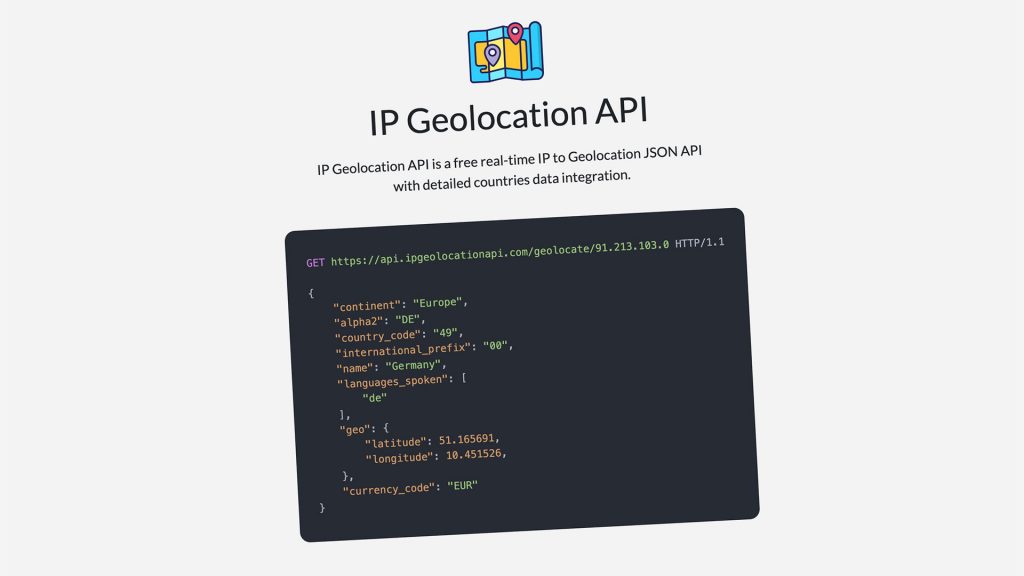Do you want/wish to provide a personalized experience for your website visitors?
It is possible with the IP Geolocation API tool.
The IP Geolocation API is an open source tool used for IP geolocation. It makes a website work better for people across the globe. Also, it’s free and fairly easy to use.
Let’s have a detailed look at the tool and how it works.
Importance of Geolocation data.
When it comes to creating personalized and more unique website experiences, then Geological data is very vital. Geological data guides your website on how to display certain information such as the time-sensitive notifications or the time zones that connect to interactive elements, or the particular language users are likely going to speak so that they can get the correct design version.
Geolocation is the estimation or identification of the real-world geographic location of an Internet-connected device or computer terminal.
The data provided by IP Geolocation API makes tap or click to call easier as it includes such data as phone and dialing prefixes with different countries’ codes.
The IP Geolocation API tool is one of its kind as it is free, open source, and it is secure. The tool provides more detailed information without the user’s actual IP address being detected. This makes the user anonymous.
How does the IP Geolocation API work?

IP Geolocation API is a real-time IP to Geolocation JSON API, and it has a detailed country data integration.
It provides information such as the real geographical location (the continent and country). The information is provided in terms of alpha, and numerical codes, latitude, and longitude, international prefix, location name, languages spoke, and the currency code.
The tool uses a country’s information that has been packaged as convenient JSON objects. It includes data from ISO 3166 (countries and states/subdivisions), ISO 4217 (currency), and E.164 (phone numbers). The information is accurate and up-to-date as it is updated monthly.
With a few lines of the code information, the backend of your website is powered, providing the users with specific location information. A website user will, therefore, get a better experience from the word go without doing anything. For example, if you visit a site from a different country that uses a different language, the language shifts to your language without having to do anything. Another scenario is when a user visits a particular online shop that uses a different currency. The currency is auto-detected and appears in the correct format.
This crucial tool is from a company at Apilayer, and the company makes different innovative apps for website users and owners. Their other tools include screenshotlayer, currency layer, pdflayer, numverify, etc.
From the company: “Our goal is to offer quick and simple access to our software to speed up the development of your applications and ease the burden on your back-end.
“Our team has the opportunity to rethink how key processes work and how they can be improved, and we are thrilled to be building an entire platform dedicated to allowing companies to focus on what matters.”
apilayer
How to get an IP Geolocation API tool.
Since IP Geolocation API is a free and open source tool, you only have to grab it here.
Also, you can self-host by looking for an available “Deploy to Heroku” button.
The tool’s developers require you to cache the results to maintain the ability to offer the tool for free and to keep the service functioning as smoothly as possible. Although the tool has no guaranteed warranty, its developers keep things running smoothly.
Conclusion
IP Geolocation provides valuable website data that can be used to make relevant adjustments to a new build or your current website. It ensures that there are no privacy concerns because it works without using the actual IP address. Moreover, it is user-friendly.
The preponderance is that it is an open-source tool. It is developed in a collaborative public manner. The source code license is in such a manner that the copyright holder grants the user’s rights to change, study, distribute the tool to anyone and use it for any purpose.
If you, therefore, have a website that relies on location information, why don’t you try it and see for yourself?